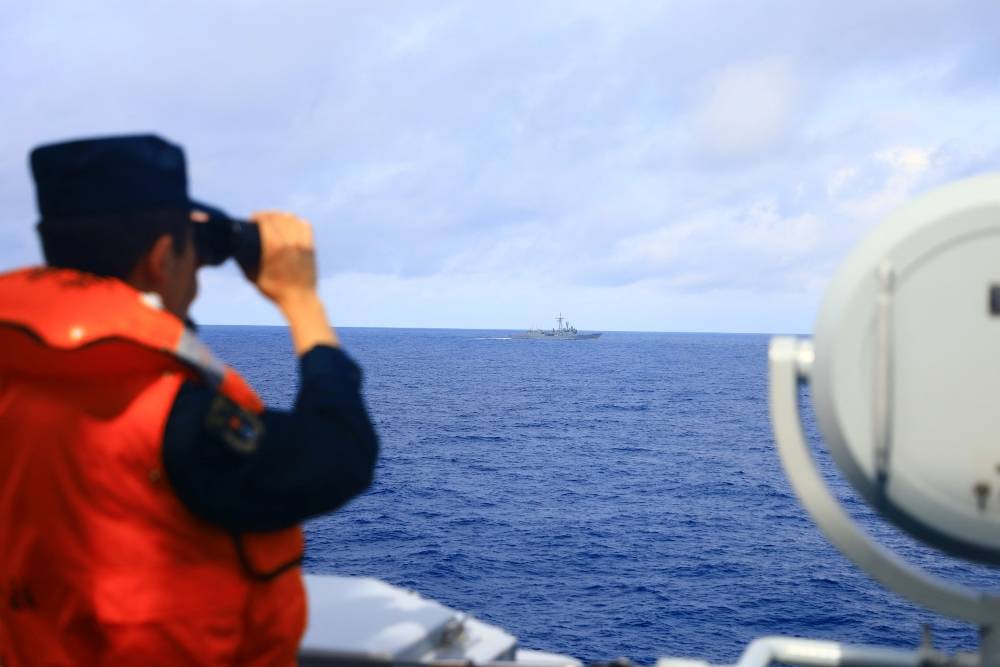Amid several international crises, US-China relations constantly oscillate between tensions and calm. The United States and China, the two largest economic powers in the world, diverge on many issues, ranging from Taiwan to the South China Sea, Ukraine, the Israeli-Palestinian conflict, Africa, and human rights.
US President Joe Biden describes the conflict between the United States and China as "fierce competition" and repeatedly states that maintaining American supremacy in the 21st century depends on its ability to contain China's rise.
On the other hand, Chinese President Xi Jinping cautiously moves towards asserting China’s place among nations, believing that as the world’s second-largest economy, it has the right to consolidate its interests in various regions, even if this means confronting American interests.
Washington pressures Beijing by strengthening its economic and military relations with Japan, South Korea, the Philippines, Vietnam, Australia, India, Indonesia, and even the smaller islands of the Pacific and Indian Oceans, as part of a strategic "containment" effort.
The issue goes far beyond Ukraine and Taiwan, touching on the visions of China and the United States regarding the nature of the world order that emerged from the fall of the Berlin Wall and the collapse of the Soviet Union.
Periodic sanctions imposed by the United States are the sharpest weapon in this open confrontation with the Chinese dragon, aiming to reduce its influence in the world’s largest geopolitical region, described by former Japanese Prime Minister Shinzo Abe as the "Indo-Pacific region," which accounts for two-thirds of global trade, relegating Europe to a secondary role in trade and politics.
What the United States wants from China today is to break its strategic alliance with Russia. They know that as long as this alliance endures, the Western sanctions (over 16,000) imposed on Moscow will not succeed in destroying the Russian economy, as the Chinese market has replaced the closed European market for the Kremlin. Additionally, technology banned from Russian companies is supplied by Chinese firms, either directly or through third parties. The United States believes that destroying the Russian economy is the key to defeating the "tsar" in Ukraine.
Earlier this month, Biden sent his Secretary of State, Antony Blinken, to Beijing with a warning against the continued supply of dual-use technologies to Russia. Faced with a lack of cooperation, he imposed sanctions on Chinese companies accused by the US Treasury of exporting their products to Russia, threatening to target Chinese state banks if they did not comply with American warnings.
Beijing did not hide its anger at the new American measures, as Xi Jinping welcomed Putin on the red carpet on May 16, renewing the "no limits" alliance announced between Russia and China since 2022.
China took advantage of the inauguration of the new pro-independence Taiwanese President Lai Ching-te to impose sanctions on 12 American defense sector companies and their leaders, accusing them of "economic coercion" against Chinese companies and of selling arms to Taiwan. Among these companies are Lockheed Martin and Raytheon.
The Chinese leadership went further by responding to the "provocative" statements of the Taiwanese president during his inauguration on May 21 by launching two days of extensive military maneuvers around Taiwan, warning against any declaration of independence by the island, which has been autonomous since 1949.
Chinese sanctions, which are not the first, following those imposed on two American companies on April 11 for suspected arms sales to Taiwan, show that the Chinese president is not ready to yield to American demands to reduce its relations with Russia.
These measures also aim to send a warning to the European Union, with some leaders accusing China of supplying Russia with goods to support its military industries, allowing it to continue the war in Ukraine.
Xi Jinping heard direct criticisms from French President Emmanuel Macron during his visit to Paris this month.
China has repeatedly asserted that it is not a party to the war in Ukraine and is ready to help find a solution to the conflict, proposing an initiative last February, which remained ignored in Kyiv and the West.
What has changed now is that Russia has gained the upper hand on the ground. That is why the West is pressuring China to use its influence on Putin to end the war. The invitation from Ukrainian President Volodymyr Zelensky to Xi Jinping to participate in an international peace conference for Ukraine next month in Geneva acknowledges the importance of China’s role in resolving this conflict, the most severe in Europe since World War II.
The issue goes far beyond Ukraine and Taiwan, touching on the visions of China and the United States regarding the nature of the world order that emerged from the fall of the Berlin Wall and the collapse of the Soviet Union. Washington is keen on unipolar hegemony, while Beijing and Moscow believe it is time for a multipolar order.
It is a confrontation between two worldviews.
Please post your comments on:
[email protected]
 Politics
Politics














